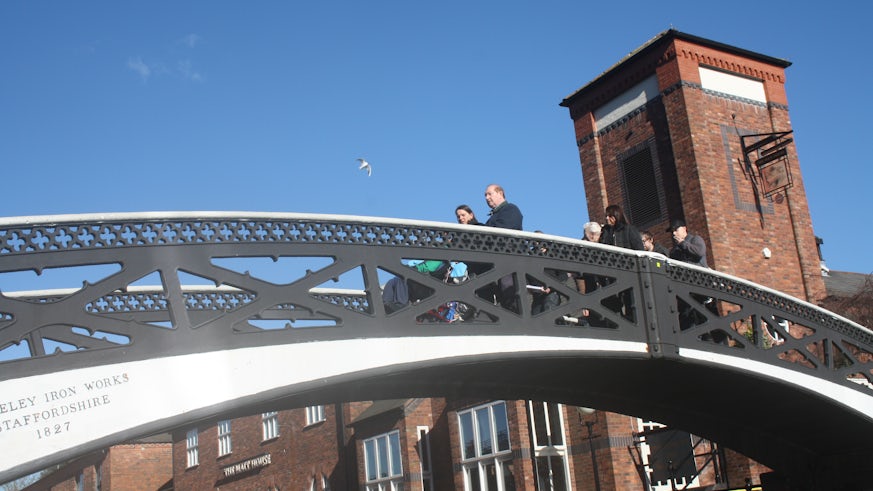Dirty. Drowning. Dodgy people.
21 October 2016

Dirty. Drowning. Dodgy people. These were amongst the answers from a group of Leicester residents asked what first comes to mind when they think about canals.
In partnership with the Canal and River Trust, researchers from the Sustainable Places Research Institute are investigating what can be done to attract all communities to use canals, and whether certain groups are deterred from doing so by particular factors.
Since it was established in 2012 the Canal and River Trust (CRT) has been working to challenge such perceptions, introducing people across England and Wales to canals as somewhere to enjoy escaping to.The charity cares for 2,000 km of waterway including the historic features and wildlife which call them home. It enables people to access the water and routes alongside, running diverse activities including extensive volunteering and education programs. The Canal and River Trust’s mission is for the public to benefit from these assets which it cares for on behalf of the nation.
But communities living alongside canals are not always aware how to access and enjoy the waterway network. A survey led by the Institute found that in Leicester, England’s most diverse city, only 4% of people using the towpath were from Black, Asian or minority ethnic groups who make up more than 45% of the surrounding community. Those using the towpath tended to be male (68%), and unlikely to be younger than 24. Yet the survey found that those who do visit Leicester’s waterways find them relaxing and calm, and in good condition.
This summer researchers joined a programme of activities run by CRT to introduce people to Leicester’s waterway for the first time. Sessions were run with SOCOPA - The Somali Community Parents Association, a charity supporting asylum seekers, refugees and new arrivals, especially from East African countries. Families had the chance to try canoeing or join a guided health walk, with experts showing them how they can enjoy the waterway near their homes.
Feedback on the activities was very positive; BBC East Midlands covered the group’s boat trip in a local TV and radio news bulletins. Researchers are now working to understand whether there is likely to be a sustained impact on participants’ behavior, and how organisations like CRT can enable them to benefit from greenspaces and waterways.